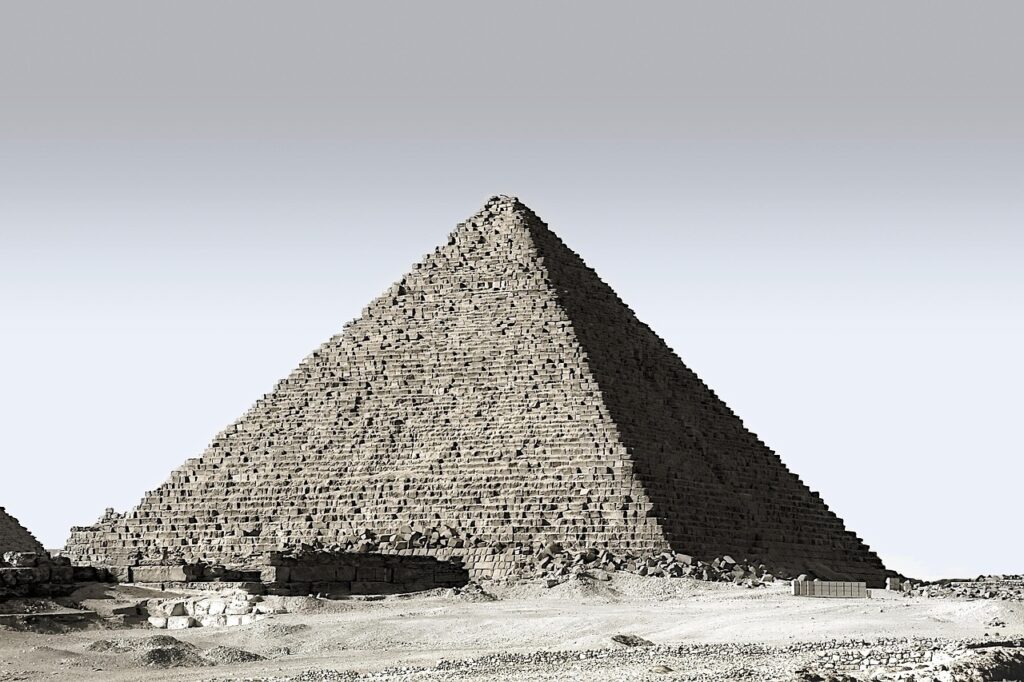This article originally appeared in The Skeptic, Volume 6, Issue 1, from 1992.
It is not easy to say exactly what psychic questing is. It all ties in with a mishmash of the Tarot, ley lines, reincarnation, archaeology and the old gods. It’s like a medieval pilgrimage – an excuse for a jaunt with your mates. Together you travel around the country to destinations which have been indicated to members of the party by dreams, meditations or omens.
Meditation in this context takes the form of one person describing a vision or image while the others visualise it. Sometimes the image is projected onto a real landscape, and this can lead to hallucinations, or visions. When you arrive at one location, further meditations and omens will direct you to the next. Meanwhile, by a process of midrashic interpretation, you try and impose some kind of pattern on, or see some purpose in your wanderings, ideally with a specific end point. You may find significant artefacts along the way. It’s rather like a treasure hunt with cryptic clues.
The ‘Third Great Psychic Questing Conference’ was held at Conway Hall on the 9th and 10th of November 1991. On the first day there were lectures and a party, followed on the second by visits to ‘sites of historic, magical and mystical interest across Central London’, plus ‘meditation and psychic work’. I attended the first day (but not the party). The lecture-room was packed, with the younger members of the audience tending towards leather jackets, Megadeth T-shirts and Gothic silver jewellery. The conference was organised by Andrew Collins, inventor of the concept of ‘psychic questing’ and author of The Seventh Sword, just released by Century as a follow-up to The Black Alchemist, The Brentford Griffin, The Knights of Danbury and others.
Collins is from Essex, as were the other conference speakers. He put on a good performance. His platform style, like his book, was matey, down to earth and effective. The other speakers (all male) also put on displays of ordinary blokishness. One who referred to himself as a pagan resembled Mike Reid (‘Stone me! An apport. Blimey, it’s a big one.’) The ‘I too couldn’t believe it at first’ rhetorical device was used quite frequently. The speakers seemed unsure whether or not to emphasise the strangeness of what they claimed; in fact they tried to have it both ways. You have to stress the strangeness if you want to hold on to your audience by creating drama, but making out it’s all frightfully ordinary might compel belief. Yet again, incredibly mundane happenings like opening a book and seeing the word ‘Ewelme’ are ‘amazing’ and ‘really freak one out’.
Sooner or later, the other speakers all mentioned ‘my friend and colleague Andy Collins’ and ‘a talented psychic called Debbie’. No women spoke, yet there was a strong female presence in the accounts of the psychic questers’ adventures. It was women who ‘channelled’ the ancient druids who told the gang where to go next (‘Before we knew it, Debbie had gone into a trance in the middle of the motorway.’)

Andrew Collins, the star of the show, began his talk by saying that: ‘Psychic questing needs a little bit of definition,’ and promised to reveal ‘what brought us into the whole business in the first place.’ In the 70s he was a UFO researcher, but he became more interested in the witnesses than their testimony (‘Were these people liars? Did they have a vivid imagination that ran riot? They were very genuine people but seemed to live in a very strange world.’) He found that many were of Irish, Gypsy and Jewish descent and had undergone other psychic experiences, as had their families. Instead of concluding that there was a cultural connection, he formed the ‘psigenic’ theory – that psychic ability was transmitted in the genes.
In this way he became interested in the psychic world, and instead of watching telly after coming back from the pub he and his friends would do a spot of hypnosis and meditation. The group started discovering artefacts. They wanted to be involved in psychic research, but couldn’t relate to the methods of the Society for Psychical Research. They wanted to bring it into “the day to day context, taking it out of the cliche, stereotyped idea of people round a table with a crystal ball and a woman in a gypsy headdress saying ‘Is anybody there?’. It’s obviously a thing of Edwardian antiquity. We couldn’t handle that. We thought, let’s do it in a more streetwise manner. So psychic questing was born.” It was a “mystical history of spirituality making a cohesive story that stretched back through thousands of years. It was given to us snippet by snippet in the form of messages, synchronicities and omens. Dreams revealed certain information we weren’t previously aware of… creating this idea of gallivanting around the landscape looking for artefacts.”
Revealing a story in snippets helps to keep up the suspense. He added that looking for artefacts is a ‘carrot dangler’ to make you go out and do something. So, the idea of psychic questing was established: “Those involved in this are agents of fate. Once you say to the forces that be, ‘OK, hit me with the dreams’, you are led on a personal course of enlightenment. It may take years to understand what is going on,’ but ‘there’s plenty for everybody in it”.
Every good story needs a baddie, like SMERSH or the Mafia: “The story gets bigger and more awesome as time goes on, but we are beginning to understand the whole web of intrigue involved.” In the case of psychic questing the enemy is “a sinister group called the People of Hex”. Unseen but leaving clues, they perform dark rituals at sacred sites all round the country. Debbie had a vision of a druid, which led them to a pond barrow: “This druid was basically saying “Come down ‘ere, summink ‘eavy’s ‘appening.”‘ At the barrow, they found a bone inscribed with strange characters – evidence of the People of Hex. ‘People were pumping up the energies in relation to ancient warriors causing a considerable imbalance of energies.’ The People of Hex perform negative rituals and ‘we had to stop it. It was like unblocking the plughole.”
The second speaker, Paul Weston, had a slightly apologetic manner. Was he afraid of looking a fool? Afraid of people saying ‘Leave it out, John’? Had he been persuaded into all this by Andy Collins – or Debbie? In March 1990, he said, ‘strange phenomena abounded. The general climate was such that we were prepared to believe that anything was possible. One night in my living room, everything was very relaxed, candlelight, spacey music and all that.’
Then a strange phenomenon happened: an electric fire turned itself on unaided. Debbie was sitting right by it all the time and saw nothing. But she did see a cat goddess, a woman with a cat’s head, in the house. ‘This was an enigma for me. I didn’t know what to make of it. This of course to me meant nothing – it was non-reality. This was meaningless to me, but I was willing to be open to the possibilities. I was willing to go further with it.’
Debbie then discovered a gateway to Ancient Egypt in Paul’s bedroom (audience laughter) including the step pyramid of Saqqara and a temple to the Ancient Egyptian cat goddess Bast. ‘I mean what can you say? It’s a load of bollocks? This was non-reality. But I was willing to believe that something could come out of it. I said show me, prove it to me. But it would never have become reality to me if I hadn’t kept a dream diary.’

Paul started getting dream messages about seven holy wells of Isis at the source of the Thames. ‘You won’t find this in the conventional history books. But I was prepared to take it on board. I was talking to Debbie about it and she said ”This is a clue”.’ He performed Bast rituals in his bedroom. ‘I was talking to a brick wall. I was aware of the absurdity.’ After one of ‘these little spectaculars’ he opened a book at random and saw the name Ewelme. I focused my attention on Oxfordshire. I had a dream of a sign saying Godstow.’
After a sequence of events which were rather hard to follow, he decided to try and ‘accomplish something with the River Thames… sacralising the river… I was going along the river of darkness. I took it as a little experiment with creativity. I turned the Lady of Shallot into the Goddess Isis by using imagery from Apuleius’s Golden Ass.’ He read out Apuleius’s description of lsis in the ruins of Reculver: ‘Gothic ruins by moonlight, very fetching. Some kind of meditation was in order.’ After this, ‘We were completely shattered. People could hardly walk. Something very powerful was going on here.’
They went on to another site: ‘Some of the people I was with thought this place was well dodgy and like something out of an HP Lovecraft story (knowing laughter from the audience). Make of that what you will. I ended up doing a Basil Fawlty, holding my head and barking like a dog. This to me was just so bizarre.’ However, ‘The climax of the whole thing was very inconclusive.’ They ended up in a pub in Oxfordshire where he had a vision of a Toulouse Lautrec cafe. ‘I tranced out. I got really melancholy, I really spaced out. I wasn’t happy about it any more, I didn’t feel right. I felt I had lost the concept of resacralising the river. This Bast thing – what the hell was it all about? But finally its emergence seemed to stimulate the dredging of my subconscious.’ Long-buried memories returned that ‘would tax the ingenuity of a Marcel Proust or a James Joyce’. He decided it was ‘part of Jung’s individuation process. I’m grooving on that now.’
Psychic questing is a romantic pursuit. You make contact with ancient civilisations who had a superior aesthetic sense to post war town planners or speculative builders. It’s a way of repossessing Britain (Albion), looking for the real land under its hideous disguise of bloodless suburbs, emasculated town centres, shopping malls and heritage industry. It’s a way of turning your own life into a story, an outlet for your fantasy, imagination and feelings. You have an opportunity for dressing up (Celtic jewellery, black leather) and play-acting (performing rituals).
The quest plot is one of the oldest, but what seems at first sight to be an occult version of Tinker, Tailor, turns out to be not an enigma with a solution, but a prolonged tease, more Twin Peaks than John le Carre. There is always ‘more work to be done’. ‘Information comes out all the time’ and the bandwagon keeps rolling. The artefacts are part of the tease, not an end to the quest. Could the ‘carrots’ be ‘salted’? A quester must keep his or her reputation, and a leader must keep his followers.
Ultimately it’s all strangely pointless – and Paul Weston seemed to sense this. It’s like the Great Secret or the Holy Grail. When you find it all it says is ‘The All is the One’ or ‘There’s no Place Like Home’.



